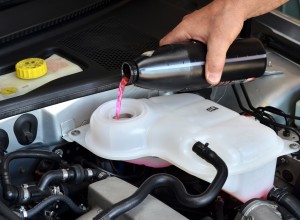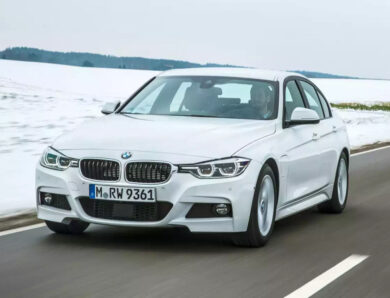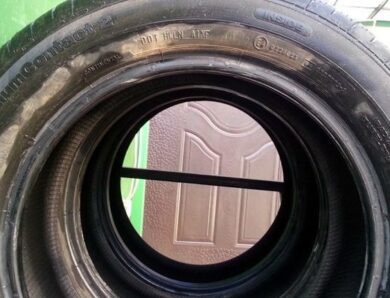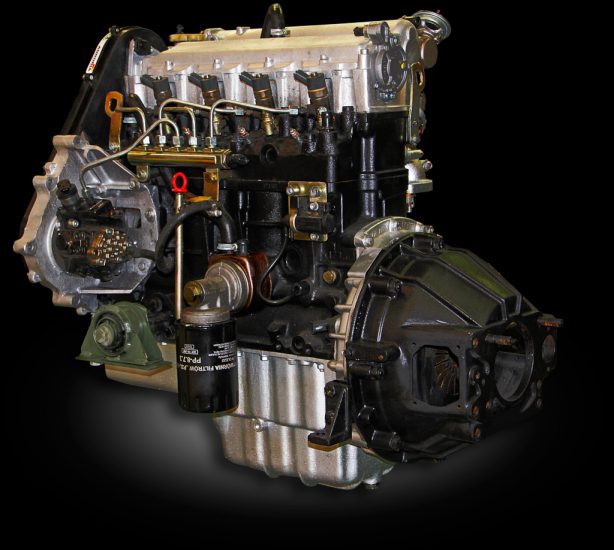
Diesel engine efficiency

Coefficient of performance (KKD) is a quantity, which in percentage terms expresses the effectiveness of a mechanism (engine, systems) on the conversion of energy into useful work.
As for the internal combustion engine (ICE), such a power unit converts thermal energy. Given that the energy released is the result of fuel combustion in the engine cylinders. The efficiency of the motor is actually perfect mechanical work, which is the ratio of the energy received by the piston from the combustion of fuel and the final power, which is given by installation on a cranked shaft of the internal combustion engine.
We also recommend reading the article about it, what is the engine life of a diesel engine compared to gasoline. In this article you will learn about the main factors, affecting the resource of the internal combustion engine before the first overhaul.
Why diesel efficiency is higher
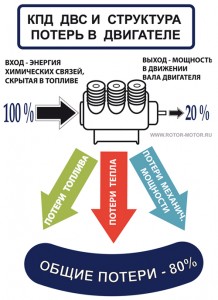
The efficiency for different engines can vary greatly and depends on a number of factors. Gasoline engines have a relatively low efficiency due to the large number of mechanical and thermal losses, which arise in the course of work of the power unit of this type.
The second factor is friction, arising from the interaction of conjugate parts. Most of the cost of useful energy is the propulsion of the engine pistons, as well as the rotation of parts inside the motor, which are structurally mounted on bearings. Close 60% the energy of gasoline combustion is spent only on ensuring the operation of these units.
Additional losses are caused by the work of other mechanisms, systems and attachments. The percentage of resistance losses at the time of the next charge of fuel and air is also taken into account, and then the release of exhaust gases from the cylinder of the internal combustion engine.
If you compare a diesel engine and a gasoline engine, the diesel engine has noticeably higher efficiency in comparison with the petrol unit. Gasoline power units have an efficiency of about 25-30% of the total amount of energy received.
In other words, spent on engine operation 10 liters of gasoline only 3 liters spent on useful work. Other energy from fuel combustion was lost.
As for the efficiency of the atmospheric diesel unit, then this figure is close 40%. Installation of the turbocharger allows to increase a mark to considerable 50%. The use of modern fuel injection systems on diesel internal combustion engines in combination with a turbine has allowed to achieve an efficiency of about 55%.
This difference in performance of structurally similar gasoline and diesel internal combustion engines is directly related to the type of fuel, the principle of formation of the working fuel-air mixture and the subsequent implementation of the ignition of the charge. Gasoline units are more agile than diesel, but large losses are associated with the consumption of useful energy for heat. It turns out, gasoline energy is less efficiently converted into mechanical work, and most of it is simply dissipated by the cooling system into the atmosphere.
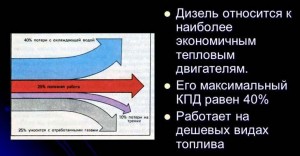
We also recommend reading the article about it, how to increase the power of a diesel engine with chip tuning. In this article you will learn about it, what is the firmware of the engine and what results are achieved by changing the standard parameters of the controller.
Power and torque
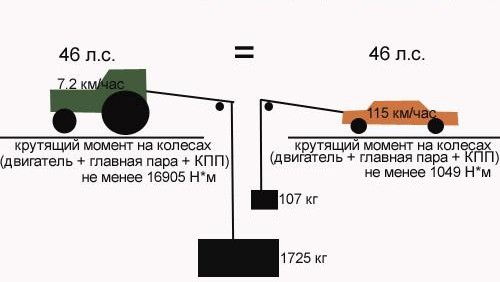
With the same volume, the power of the petrol atmospheric engine is higher, but is achieved at higher speeds. The engine must be "turned", losses increase, fuel consumption increases. It is also necessary to mention the torque, which literally means strength, which is transmitted from the engine to the wheels and drives the car. Gasoline internal combustion engines reach maximum torque at higher speeds.
A similar atmospheric diesel reaches its peak torque at low revs, while spending less diesel to do useful work, which means higher efficiency and fuel economy.
Diesel fuel generates more heat than gasoline, the combustion temperature of diesel fuel is higher, the detonation resistance is higher. It turns out, the diesel internal combustion engine produced useful work on a certain amount of fuel more.
Energy value of diesel and gasoline
Diesel fuel consists of heavier hydrocarbons, than gasoline. Lower efficiency of the petrol installation in comparison with diesel also consists in an energy component of gasoline and features of its combustion.. Complete combustion of equal amounts of diesel and gasoline will give more heat in the first case. The heat in the diesel engine is more fully converted into useful mechanical energy. It turns out, when burning the same amount of fuel per unit time, diesel will do more work.
It is also necessary to take into account the peculiarities of injection and the creation of appropriate conditions for the full combustion of the mixture. Diesel fuel is supplied separately from the air, not injected into the intake manifold, and directly into the cylinder at the end of the compression stroke. The result is a higher temperature and the most complete combustion of a portion of the working fuel-air mixture.
Results
Designers are constantly striving to increase efficiency as a diesel, and gasoline engine. Increasing the number of inlet and outlet valves per cylinder, active use of gas distribution phase change systems, electronic control of fuel injection, throttle and other solutions can significantly increase the efficiency. This is especially true of the diesel engine.
Due to these features, modern diesel is able to completely burn a hydrocarbon-rich portion of diesel fuel in the cylinder and give a high torque at low speeds. Low revolutions mean less friction losses and friction resistance. For this reason, the diesel engine today is one of the most productive and economical types of internal combustion engines, The efficiency of which often exceeds the mark in 50%.


